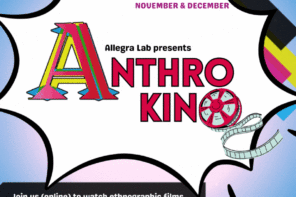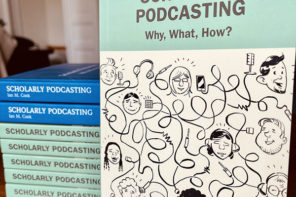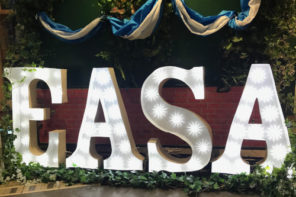This week, anthropologists will be making their way to Denver for the yearly academic (and sometimes chaotic) ritual that is #AAA2015. The “Familiar/Strange” theme of this year’s AAA meeting lends itself easily to reflexivity, as we confront what it is anthropology sets out to do, and how we go about doing it. Appropriately, then, the program hums with themes like otherness, exoticism, and alterity, accompanied by preoccupations with method, disciplines, teaching, and activism. Read on to see Allegra’s previews of some of our favorite panels, and let us know which ones you’re most looking forward to in the comments!
It’s always a good sign when you run into words in the program that your computer’s spell check can’t recognize, and this year’s titles do not disappoint. Some of the finest wordplay shout outs go to: “homo islamicus” (on disciplines and moral economies of the Islamic subject), “b/ordering infrastructures” (on contested spaces and mediated mobility), “ngo-graphies” (a roundtable on NGOs and nonprofits), “making the familia(r) strange” (on migrant kinship networks in Latin America), “toxicities and toxic cities” (on environmental contamination), “queerying Palestine” (from the Association for Queer Anthropology), and “the value of (neo)liberal arts” (on the marketing of the college experience).
The fun doesn’t end with the titles, though! For the extra adventurous is a special fieldtrip into the urban jungle of Denver: “Cannabis Cultures,” a free public engagement event sponsored by the Association for Political and Legal Anthropology (APLA). You’ll get to tour a grow house, dispensary, and hear a forum of experts discuss “the political, economic, and social processes that transform a cultural object (marijuana) from strange (criminal) to familiar (legal).” There’s even a souvenir t-shirt!
APLA will also be sponsoring several panels and workshops throughout the week. “Undisciplining Law and Economy,” “Speaking of Evidence,” and “The Actant Archive: On Surveillance, Subversion, and Self-Fashioning” draw attention to methodology and practice within political and legal anthropology. In these panels, scholars ask how we differentiate between the domains of law and economy, how evidence is constituted in bureaucracies, and how archives fit into theoretical and ethnographic explorations of data technologies.
Several panels seem to have their finger on the pulse of current events that have increasingly been demanding the attention of anthropologists. “This Too Is Ferguson,” “Ferguson and Beyond,” and “Race and Revolution, from Fanon to Ferguson,” among others, address themes of the Black Lives Matter movement and the anthropology of policing. Added to this, the ongoing issue of the Israeli academic boycott has its own panel, and “The Syrian Civil War” panel opens up the urgent conversation about refugees and human rights.
Some other titles that look exciting include “Creative Disorientation: Ethnographic Sensibility as Improvisational Art,” “Looking Across Boundaries: Poetry as Social Action,” “Capitalizing on the Carnivalesque: Questioning Transgressive Humor, Language, and Power,” “Keywords for a Counter-Neoliberal Anthropology,” and finally, from the blogosphere itself, “The Internet and Anthropology: Ten Years of Savage Minds.” We look forward to the lively discussions we hope these topics provoke, whether within or between panels–as always, as much anthropology happens outside of the scheduled sessions as in them!









